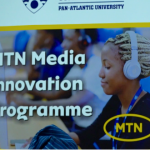Artificial intelligence is becoming a reality and changing sectors at a rate never seen before. It is no longer a sci-fi dream. While some view AI as a game-changing technology, others worry that it may soon lead to a mass loss of jobs. Bill Gates, a tech mogul, says those concerns may not be wholly unjustified.
Gates has cautioned that in the upcoming years, AI will automate occupations in a variety of industries, making many jobs redundant. In spite of this uncertainty, he has determined that three occupations will probably endure the AI revolution—at least for the time being.
The Three Jobs AI Can’t Replace
#1. Coders: The Architects of AI
It is funny how those who are most likely to maintain their jobs are those who are developing AI systems. Even though AI has advanced significantly in writing code, it still lacks the accuracy and problem-solving abilities required to produce sophisticated software. According to Gates, human programmers will continue to be crucial for improving, debugging, and developing AI.
To put it simply, coders are a unique kind of labor whose abilities will only grow in value because AI requires humans to develop and maintain it.
#2. Energy Experts:
AI cannot handle the size and complexity of the energy sector on its own. Industry professionals must negotiate regulatory environments, plan sustainable solutions, and manage the unpredictability of global energy demands, whether they are working with nuclear power, oil, or renewable energy.
Gates contends that human skill is indispensable in crisis management and decision-making, even though AI can help with analysis and efficiency. Energy professionals are still essential for the time being.
#3. Biologists:
AI still finds it difficult to replace the creativity, intuition, and critical thinking that biologists depend on, especially in scientific discoveries and medical research. AI is capable of analyzing large datasets and helping with disease diagnosis, but it is not able to generate novel theories or make logical scientific advances.
According to Gates, AI will be a useful tool rather than a replacement for biologists, who will continue to be essential in improving medicine and comprehending the intricacies of life.
Bill Gates Admits That the Future is AI
Gates admits that his predictions might not come to pass and that AI’s impact on the labor market will probably change in ways that are not yet apparent. Similar to how the internet and the Industrial Revolution changed the workforce, artificial intelligence will change how we work and what skills are still useful.
For now, people in the fields of biology, energy, and coding can relax a bit. But what about the others? It might be time to innovate, upskill, or, as Gates argues, get ready for a future in which AI is a rival rather than merely an assistant.
Even while he is optimistic about AI’s potential, Bill Gates has warned that in just ten years, it may become so advanced that most tasks no longer require human skill. During his appearance on The Tonight Show, Gates underlined how AI will transform industries like education and healthcare by democratizing access to expert-level knowledge. His worries are similar to those of Mustafa Suleyman, the CEO of Microsoft AI, who believes AI will eventually replace human labor rather than supplement it.
Gates cautions that the future of human labor is still unknown in a more automated society, but he encourages young entrepreneurs to embrace AI’s potential as it advances toward dominance.
Read Also:
- United States Citizenship and Immigration Services Seeks Applications for Additional H-2B Work Visas for 2025 & Filing Dates
- Canada Invests Over $14.3 Million to Attract Healthcare Workers in 2025
- University of Gloucestershire in the UK Announces International Scholarships 2025 & Free Scholarship Webinar
- 2025 Hyundai Motor Group £27k Scholarship for African Students at SOAS University of London
- How to get loans to study in the USA and Canada









